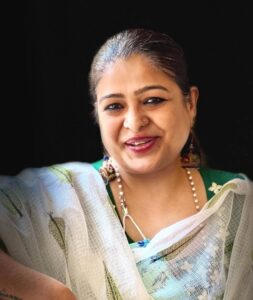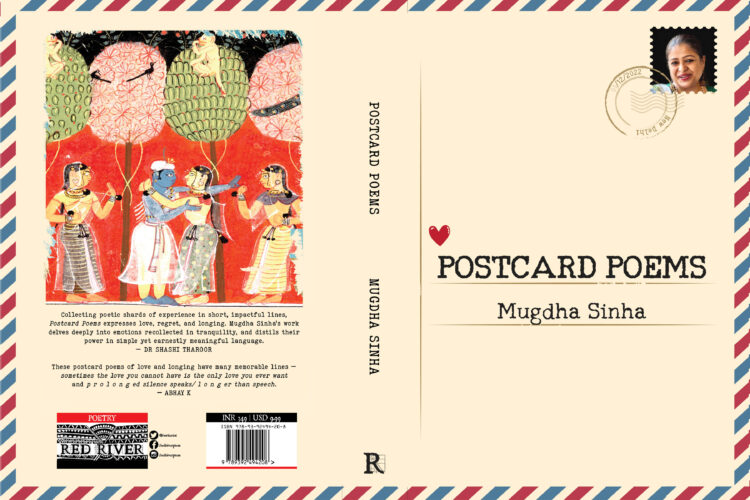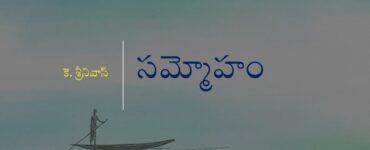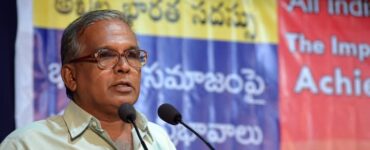She also doodles meditative mandalas and paints wine-vodka bottles under her brand name bottle_is_canvas. A relentless bibliophile who runs an annual book reading challenge on her Instagram handle @bookspk2020.
She is an officer of the Indian Administrative Service and this is her first book of poems in English.
*
Passionate and profound, Mugdha Sinha’s debut anthology Post Card Poems is an intimate literary triptych that is sensitive, compelling, and deep. Divided into three sections titled, “Love, Umbra and Light,” this delightful anthology anchors a vibrant corpus of more than hundred poems. The poems explore complex scapes of love, grief, yearning, learning and Nature in refreshingly original ways.
Sinha negotiates each of these spaces with her succinct and seamless language, that illuminate her pages with a singular tactility. For instance, her love poem, The Kiss asks, “you wanted to bestow a kiss/ but could not decide how- whether to do it as one does to a rose or a rosary/ I am still waiting.” While every poem is a lyrical thumb nail of Sinha’s nuanced personal journeys, it never fails to include the reader in each of these journeys providing a deep sense of universal empathy and accessibility that it chooses to share. Her poem Azadi states, “sometimes the love you cannot have is the only love you ever want. Absentia – the best measure of love holds equally true for Azadi.”
Epigrammatic in structure and packed with a rare Koan like wisdom, several of these poems gesture towards an intuitive understanding of life. In the Transformation, she writes, “In healing, I healed/the wound is now sacred heart/ from seeking, Buddha was born.” Her heart lifting reflections create epiphanic moments, where trauma and absence are gently substituted by a silent, palpable presence, as she writes in Rest in Peace, “I laid him to rest/like one does a rose/between the pages of a book.”

While Sinha’s aesthetic bricolage confronts an array of emotions, conflicts, and dreams, her Wildean, cheeky humour is often employed as an instrument to mediate this memory mosaic, which she does remarkably well. In the Bulb, the protagonist is a “20- watt, blue-eyed filament bulb, which has the audacity to stand up to a dark unyielding night.” She concludes, … “how a tiny source of light devours a mighty night.” In the Word, “dictionaries hold the same reverence /as prayer books/ I am a woman/of my word.” Sharp, clever, and unhesitant, here is a poet whose utterances are hard to disregard. In a quick repartee to Pablo Neruda’s poem Spring, “I want to do with you what spring does with the cherry trees.” Sinha responds, “I could be the cherry blossom/if you could be the spring.” Her brilliant riposte in Ego, “when he died, they dug two graves/one for him; for his ego,” raises her poetry to a participatory mode, striking an instant camaraderie with the unknown reader. In Advice by Khushwant Singh, one cannot, but smile at the tongue in cheek when she writes, “back then in college not enough poetry blossomed/and certainly no love happened either/but I regret not asking about whiskey/what a waste of an opportunity.” Mercurial wit acts as a comforting camouflage and helps traverse the not so easy landscapes of grief and loss.
Through it all, Sinha’s narrative voice remains exceptionally lucid, reflexive, and addictive. Hers is a unique style, where a dignified restraint deftly balances an intense intimacy. In her ability to hold on and to let go simultaneously, her vulnerability is also her strength. Ouroboros reads, “a poem/for every ache/ for all pain – poetry/self-inflicted/pain and self-prescribed panacea/love both”. Post card poems represent the real and the imagined, the literal and the metaphorical. Notwithstanding the structure of some of the poems that appear to be wickedly playful and Avant-garde, Sinha never loses sight of their evolution that is delightfully organic and meaningful. In Response, p r o l o n g e d/silence speaks/l o n g e r/than speech/ v a c u u m devours words/ parched lips /inherit/v o i d.
In the Nature poems, the ecological self is a wider construct of identity, where the world is viewed through the lens of the ecological self. Sinha’s ecological self is both expansive and co-extensive. In Women and Trees, she writes, “women and trees/ have shared destinies/taken for granted, and/axed for what they have/to offer. In Kisses, “your kisses fall on me, hot/like flowers from a spring tree/…I pick up fallen snow and dress up like a Christmas tree/how four seasons grow on me, when you hold me in your arms.” Eventually in writing her ecological- self, the reader gradually realizes that Sinha may indeed be creating a metaphor, but it is often apparent that she herself is the metaphor. In The Uptight Tree and Fallen Flowers, “the xylem and phloem” flow like “blood and marrow,” while, “the earth unbuttons its bosom to hold us together where we lie like eternal lovers – the uptight tree and the fallen flowers. Much like the poetry of Mary Oliver, there is an intuitive and embodied awareness of the earth, where she claims, “I am a wild woman/in search of my wilderness/and I find it best in my own company/hold your curiosity/I am not a one-stop tourist spot.” In Together, she asks, “you are fresh as a green apple/untouched by snow and sun/I am ripe and a bit jaded as the/sun kissed days have made it/can the same bough/hold us together?”
The Post Card Poems are multi layered trickster poems replete with powerful protean imagery, that move from being funny agile-teasers to poems of a shamanic numinous wisdom. In God is a Mathematician, God is “a mathematician at the drawing board/who devises an equation/creates a formula/ encrypts it in beauty and art/that’s how trees have girths, we have biometrics and DNA,” or as in Insignificance she writes, “what makes us assume/you can hurt or heal? /our sheer insignificance makes it impossible/let us not usurp/ the role of the universe.”
The Post Card Poems are stamped all heart, heady, engaging, and “much too ripe-ready.” A precious collectable for all guzzlers of poetry! that cannot be missed! Get your copy now!
Red River Press, 2023. 176pp. Paperback INR Rs.349, USD$4.99
Bio-note of Vidya Sarveswaran: Vidya Sarveswaran is an Associate Professor of Literary Studies with the School of Liberal Arts at the Indian Institute of Technology, Jodhpur. She is a Fulbright Fellow and a Rachel Carson Fellow from Munich, Germany. Her research and teaching focus on Environmental Humanities and Climate Studies, and she has edited four books. She is passionate about documentary film making, script writing and the creative arts. Her debut documentary film Under Another Sky was released in the year 2020. She can be contacted at vidchen@gmail.com









Add comment